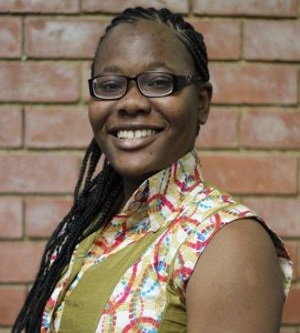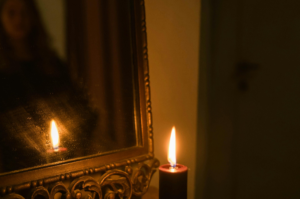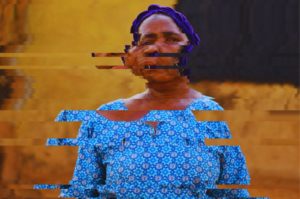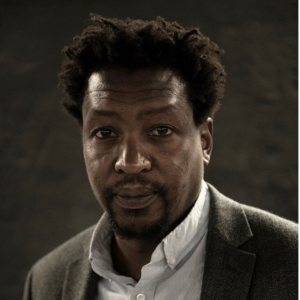
THE COMMOTION AND shrill rumble of tyres against the pavement were the only indicators that they had come. Quickly, I woke from a nightmare not too different from this one and willed myself out of bed, floating through our bungalow as silently and swiftly as I could. Our Swiss-made steel backdoor and front door were locked. I bolted the protector doors as well, just in case.
“Close the curtains too, Ellen,” I whispered to my wife who had already grabbed our two daughters and shut all the windows. As if remotely controlled, she eagerly drew the curtains shut, crouching low as she did. Her breath was hot on my neck as her eyes fought to trap mine—to find those trapped emotions my body never betrayed, but she knew too well I wore in my eyes.
I moved away to peep through the side of the curtain. It was the only thing I could do to keep her from seeing that one emotion that had most recently become my companion: regret.
The streets of Eredia, Benin City, were quiet, the night having not quite settled from the unholy interjection of the mechanical shrieks. In the dying blinking of the streetlamp beyond our freshly dried low grey fence, and through the spaces between the white iron bars atop it, I could make out no less than four intimidating jeeps, Prado I guessed, pitch-black like an extension of the night, but flashier—its socialite sister with tinted windows for accessories.
The rest of the street was empty. The mama from the mama-put roadside food stall had run off, the area-boys who dillydallied aimlessly till well past midnight—claiming to be vigilantes in order to enjoy free food and undeserved tips—had run off; even the relentless crickets, usually shrieking their hearts out while everyone slept, had run off. No doubt, all of them chased away by this nerve-wracking convoy of uncertainty.
The sudden playing of the Samsung theme song haunted me long before I realised it was my phone, long after we had dived frantically to snatch the phone from the couch. Ellen, her eyes widened to expose dilated pupils, suffocated it with a pillow as I tried to silence it with the switch button. A quick peek through the curtain and grateful sigh from Ellen told me nothing had changed on our abandoned street. In the confines of our walls, however, we now had an unknown caller. My wife motioned for me to pick the call. I wasn’t so sure, but I answered it anyway, on speaker.
I said nothing. The caller said nothing. Silence on both ends of the line and then, “Are you home?”
The voice was a man’s—not just a man’s, a man in charge, deep, patient, most probably middle-aged, but perhaps with some mysterious undertones, like a snake just before it strikes. Silence. My mind was sprinting even as I knew my unknown caller was waiting. It was now 10.30 pm; thirty minutes already, but it seemed like an entire year had gone by—because it had.
From the moment we began to build our lives in Benin, it was as if, as my parents would explain, some unseen supernatural forces were sent from the village to punish us. We received daily threat text messages from suspicious numbers describing what we wore and where we went. Sometimes Ellen would go back in to change, sometimes she would make the girls skip school, sometimes she would even remain indoors for days as if any of that changed what they knew.
They were everywhere. Our only solace, besides our pastors, were the friends we had come to cherish—our house guest, who started out as a stranger in need of a place, but soon became family when Ellen invited him to stay, and my wife’s colleague who was also her only friend. They kept us grounded, but they were not here now; just the ominous presence of those tinted posh jeeps, the agitating memories of those text messages that had haunted our phones for months and the grim possibilities an alternative answer promised to bring—a Pandora’s Box.
“No,” I answered finally. Ellen’s eyes grew impossibly wider. She knew I loathed lying, always teaching our girls to tell the truth no matter the circumstances. She also knew that lesson did not apply to our present situation. This was probably a life or death circumstance and so it was only human to lie. This realisation, however, did not prevent her from clutching the girls tighter, burying them in her sides while trying so desperately herself not to breathe, as if her breathing alone would be heard by our mysterious caller. The line’s harsh beep signalled the end of an unsettling yet unfinished conversation, the caller having nothing more to say and I scared stiff to say anymore.
That night, we huddled together against the couch in a parlour that was, suddenly, hauntingly oversized. We did the only thing we could while awaiting an uncertain future: we prayed and sang in hushed voices, disguising our fears and tears as songs so intensely offered to God and making promises of a lavish thanksgiving at Pastor Jonathan’s church. I desperately wished for that, as if by wishing hard we would be instantly transported to that moment—not to the lavish thanksgiving filled with the regurgitation of our ordeal and a handsome financial appreciation to God, but to the after-party beers and grilled fish we would have with Pastor Jonathan as we laugh over this current condition. I held on tenaciously to that uplifting image as I fruitlessly fought sleep.
“EFOSA, THEY ARE leaving.” Ellen sat still, listening, the children still snuggled across our laps. I could hear multiple engines revving from outside our compound. Gently, I replaced the snugness of my lap with a throw pillow for my 10-year-old. Ellen followed suite with our 7-year-old. It was a Saturday so the girls could sleep in and with a bit of luck, never recall the events of last night.
We crept to sit beside the curtain and once there, I slowly moved the edge of the curtain to reveal the scene beyond. The sun’s first rays were the first sight I caught. It liberated me from the thick aura of hopelessness and dread, typical of prisons, that now oozed off the pristine white walls, off the reflective marble floors and off the aristocratic lemon couches of my home, and yet, it blinded me from the refreshing solace this new day brought—and the danger.
True to Ellen’s listening—again, she was always the patient listener to a fault, to our fault—the black jeeps, now exposed by the light of day, were filing out, mirroring the coupled motions of a train. There were six of them. Perhaps a result of my mental preparedness for a robbery that never occurred, and for the accompanying post-traumatic stress that nonetheless still loomed, it worried me more that no one had stepped out of the jeeps and no one had stepped in either.
They reminded me, not fondly, of the six-foot-tall unmoving bouncers at a flashy Benin nightclub. They did nothing but watch—intently—daring you to step out of line, but mostly there to intimidate. Then again, those bouncers, with their bursting surreal biceps just about the width of my torso, were a lot more spine-crushing than the random troublemaker. And as with those bouncers’ stiff expressions, I couldn’t see past the impenetrable tinted windows guarding all twenty-four jeep doors as they quickly rounded the street’s corner. The emotions though, raw and piling, weren’t as quick to leave.
Only by noon did we realise that we were no longer in danger and only by noon, five hours later, did we finally disperse from the cell of our living room. Naturally, my wife’s subject of worry soon turned from the lived nightmare of the previous day to the now-felt absence of our houseboy. He should have shown up five hours ago—when they left. For minutes, the air became stuffy and chilly all at once as we saw in each other’s eyes what we dared not to voice out loud. What if they took him? How would we break such news to his family? We were responsible for him after all.
“Maybe he didn’t come,” I said instead, trying to convince myself too. “Maybe God kept him away to save him.” I knew she didn’t fully believe my words, but it seemed to relax her, even if by just a pinch. Perhaps it was my mention of a higher power or the emotional exhaustion deeply seated in my eyes—and hers too.
We had since battled to conceal those emotions from each other and from our children. One dares not declare aloud negative things lest they come true. So instead, we declared aloud assurances that our hearts did not believe and bible quotes that our minds had crammed, in truth, to sound impressive and not because any of us had envisioned such an incident happening in real life.
The warmth radiating from the other’s body, as we walked dazed to our shared room and bed, the warmth of our fingers connected ever so slightly lent a silent comfort that transcended any words we could have spoken, a reinforcement impossible to experience with any other. We both knew that our emotions needed to be laid to rest just as we too needed to rest. We also knew that we would be recollecting those emotions before long, but only amid exaggerated interjections of “Thank God o” and “God forbid.”
MUSIC FROM A phone. An alarm? I didn’t remember setting one. It was a call—from a strange number again. The events of last night came flooding back. I checked; it was 2 pm. I jumped out of bed and sprinted to the living room. I peeped. Apart from the occasional bustle and hustle, the street was empty. Everything seemed normal. So why was I getting this call? Music again. My caller was very persistent. I kept mute as I finally swiped the green telephone icon.
Silence. Then, “Am I speaking to Mr Efosa Osanega?” I swallowed hard but affirmed my identity.
“Oh good. We feared something had already happened to you.” Dumbstruck, I was unsure how to respond. “Forgive my manners. I am Usman Bello, Deputy Director, Operations, State Security Service. I can’t say more on the phone, but we need you at our office immediately. It concerns a current investigation.” Still stunned, I hastily wrote down the address to their secret office, asking him to repeat several times. I didn’t want to miss any detail and risk getting lost.
“Trust me, Mr Osanega, you won’t get lost,” Deputy Director Bello reassured me, sounding oddly amused—or perhaps I misjudged.
THE TAXI DRIVER insisted this was the place, fervently pointing to the green, white, green Nigerian flag as proof—the only thing from the compound that could be seen above the six-foot bare cement wall discoloured with algae. It seemed abandoned. There was no signboard, no other indication of human existence besides the billowing flag, and it exuded a certain aura. It was visible but not visible, there but not there, out of place as if unaware of its ever-changing surroundings, yet too repulsive to be noticed.
I had decided to take a taxi to avoid getting lost or being followed. I gave the taxi driver just the address, omitting the name—it was a secret location after all. The few minutes of confusion that had strained the driver’s face, as he pondered on the information, were outrun by seconds of triumphant realisation which vanished as quickly as it had come, his face replaced with a cloud of what was clearly irritation.
“Oga, you dey go SSS office?” it had sounded more a statement than a question. “You are going to SSS office?”
“Y-yes,” I had stammered, immediately feeling exposed, caught red-handed.
“Ehen… na so you for talk since!” he retorted, still annoyed. “That’s what you should have said.”
Now, gazing from the fervent pointing of the driver’s forefinger to the conspicuous high-rise flag partly hidden by the horrid walls, I finally understood the Director Bello’s amused assurances of locating their office. It was, without a doubt, a secret—an open secret.
THE BUNGALOW WITHIN resembled the walls outside, only it was guarded by stern-faced armed officers in all black—from the sunglasses hiding their eyes down to their combat boots—like those bouncers, like those jeeps. The officer at the front desk ushered me to take a seat on the padded bench in the waiting area while explaining something about the Deputy Director being in a meeting. I was overwhelmed by my surroundings—not the building itself which was mostly bare inside too, but its sense of urgency and suspense. More than anything, I hated the suspense. I hated the minutes passed, spent doing nothing, a scenario that I had up until now tried my best to avoid. I dreaded having to confront my piling emotions. As if by intuition, an officer soon arrived, leading me past the gloomy corridors to the Deputy Director’s office.
“Ah, Mr Osanega, you’ve arrived,” a skinny middle-aged man in kaftan addressed me cheerfully as I walked into the spacious office. It was also bare, but for his executive chair and table and the two visitors’ chairs. Two officers resembling those I’d seen outside were clearing out with that same sense of urgency the building exuded.
“Mr Usman Bello?” I asked, trying without success to match his cheerfulness.
“Deputy Director, Operations, yes,” he finished. “Please take a seat. I am glad to see that you are well. Your family, they are well, too?”
“Yes,” as well as they can be considering last night’s terrifying incident with mysterious black jeeps, I wanted to add but didn’t.
Director Bello continued to nod long after my reply. He wore a look of cheerful wonder like he knew a secret worth dying for—a secret I hoped he would share.
“You clearly have God watching over your family, Mr Osanega,” he started. “I will cut to the chase, but first, someone called to ask if you were home last night. You said no, but I must know, were you?”
I continued to stare at him, confused, long after he asked the question. I wasn’t expecting to be asked that. Did he have some information about our mysterious caller? Or was I being charged with some felony?
“Y-yes,” I finally admitted, ashamedly, but quickly added, “I thought they were robbers, that’s why.”
“That’s fine. I just needed to know.” He leaned back in his chair. “The caller was me.”
“Oh,” was all I could say.
“We received intel that a group of people were plotting to kidnap your wife for ransom,” he continued. “We caught one of the culprits and he led us to the rest. I dispatched some of my operatives to monitor and guard your house while the investigation was ongoing. They are all in our custody now,” he finished.
Wow, this is a wonderful testimony to give over those beers and fish, was all I could think about. I especially imagined the awe-struck face of my Pastor as he would recite, “Thank you, Jesus” as if it was an anthem. I stood, feeling a little light-hearted, and began to thank Director Bello in preparation to take my leave.
His cheerful face soon became clouded with surprise. “I said they are in our custody, Mr Osanega. The same people who tormented you and your wife with threat messages. Don’t you at least want to see them?”
The question seemed absurd to me. The matter was resolved, the culprits were caught. I didn’t need to see them—I didn’t need them to see me.
“I think you should, sir,” Director Bello insisted. Perhaps it was the way he regarded me intently or the knowing smile he wore that hid yet another secret worth dying for—a secret I was now curious to find out. I finally agreed to view my tormentors on his word that they would not see me. He explained something about a special kind of mirror that would prevent the culprits from seeing us. Only then did I compliantly follow him to a dark room.
The room was dark and chilly, a thankful condition in the blistering heat of the Benin afternoon, yet all the air seemed to leave as I entered. My hairs, though scanty, stretched as if futilely attempting to depart from my body, my hastened heart seared with a pain that made my head begin to spin. The only part of my body that kept me standing, my spine, was locked stiff. In front of me were six half-naked people—five actually, one was a woman, but it wasn’t their missing clothing that caused such reactions from my body, it was their faces—faces I never dreamed would be called my tormentors.
“You know them.” It wasn’t a question.
I couldn’t trust myself to speak, but then again, I didn’t know what to trust anymore. “Yes,”I replied, the tears beginning to flow as I called each of the culprits out for him. “My houseboy.”
“Ah, yes, the one who gave them inside information for their threat messages.” I nodded dully as I continued, “My wife’s colleague,” and only friend, I refused to add as I pointed to the only woman in the group. “My church choirmaster. Our former houseguest,” who we sheltered for six months, again I refused to add. “My Assistant Pastor,” My voice became thicker, shakier, “and my Pastor,” I concluded. Pastor Jonathan.
Unable to trust my legs, to trust anyone, I staggered out of the dark room. I couldn’t see where I walked, but I walked anyway. Any sense of cheerfulness I had earlier was gone, stolen by the scorching pain in my heart. Betrayal. I tried not to think, not to feel, but that only made my head worse. So I let my mind drift to the only person I should have considered, the only person I could ever trust—to Ellen.
I wondered if she would ever forgive me. I wondered if she knew I would take it all back if I could. We would go back a year to my booming construction business and her successful academy in Cape Verde. I would not ask her to leave her home for mine or even if I did, she wouldn’t listen as patiently as she always did. She wouldn’t be understanding about my nostalgia for home and decide to give up her ownership of one of the country’s most prestigious schools—for me. She would rightly tell me the circumstances in my hometown made it unsafe for us, for our children. She would tell me as it were and I would not question, I would not argue, I would simply just listen.
ABOUT THE AUTHOR

Mary-Brenda Akoda is a research enthusiast and a Nigerian writer of fiction and non-fiction works. She has a background in Writing and Rhetoric and African Literature from African Leadership Academy in South Africa and has also provided proofreading and editing services for academic and creative works.









Tryphena Yeboah January 24, 2020 13:04
A great read!